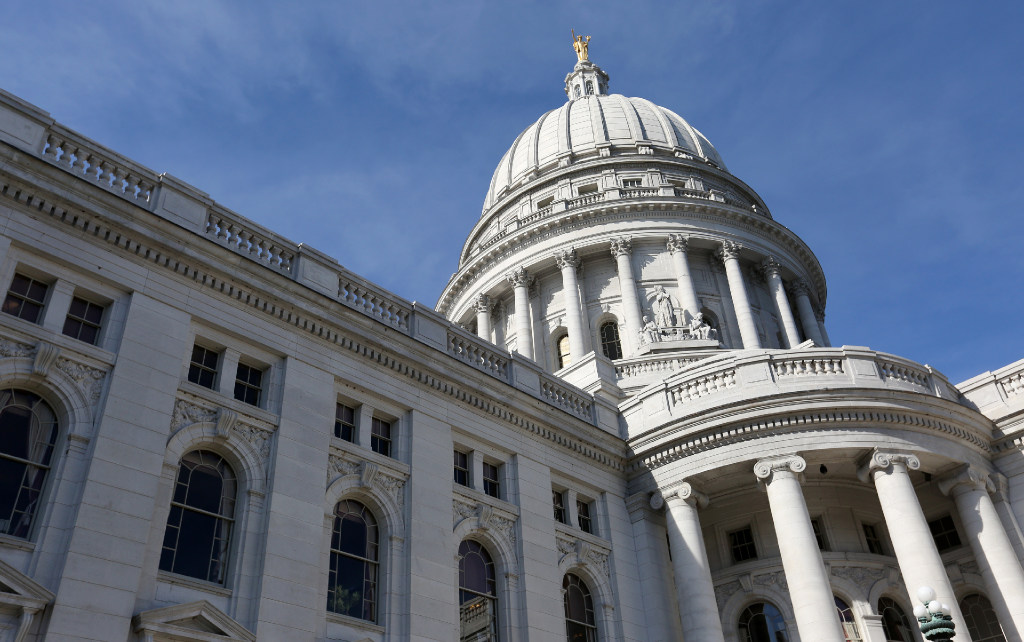The COVID-19 pandemic put a slight dent in efforts to lobby the state Capitol during the first half of the year.
It’s also the first time in the past decade that the amount spent during the first half of the year declined compared to the same period in previous sessions.
Interest groups spent at least $15.5 million and more than 92,000 hours trying to influence the Capitol between Jan. 1 and June 30 as the pandemic largely shut down the building starting in mid-March.
That was off from the $17.5 million spent over the same period in 2018, when groups put in 88,428 hours lobbying.
>> WisPolitics is now on the State Affairs network. Get custom keyword notifications, bill tracking and all WisPolitics content. Get the app or access via desktop.
That broke a string of sessions in which expenditures increased for the period. Groups spent $13.9 million in 2012, $14.3 million in 2014 and $15.2 million in 2016.
Wisconsin Manufacturers & Commerce, traditionally one of the most involved interest groups, was the biggest spender during the six-month period at $421,664.
The Wisconsin Credit Union League was No. 2 at $302,948, while the Wisconsin Hospital Association was third at $273,237.
Lobbying reports covering the first half of the year were due Friday, and most were in by early Monday afternoon. As the final reports come in, the total spent could climb slightly.
The Assembly had largely wrapped up its work before the pandemic exploded in Wisconsin, while the Senate canceled one floor period it had planned prior to the outbreak. Both houses came back for one floor period in mid-April to pass a COVID-19 bill, though many lawmakers participated remotely.
What’s more, the number of committee hearings in April, May and June were down slightly from the same period two years ago. There were 11 over that three-month period this year, compared to 15 in 2018.
WMC’s spending during the first six months of 2020 ticked up from the $358,870 it spent over the same period in 2018. The group spent 25 percent of its effort earlier this year on “legislation or policies to allow businesses who are subject to COVID-19 regulations to safely reopen.” It spent another 10 percent on AB 1038, the COVID-19 bill that passed both houses and was signed into law.
In late April, with the guv’s stay-at-home order still in place, the group released a proposal to allow businesses to begin to reopen.
WMC President and CEO Kurt Bauer called lobbying during the six-month period “unprecedented” in his time with the group. He said WMC was more regularly in communication with its members during the period as it tried to explain the impact of things like the guv’s stay-at-home order. It also ramped up efforts to communicate with lawmakers and others in the Capitol to explain the impact of various decisions on its members.
“When you have an activist government to address a global pandemic, you need an activist association representing the business community. The numbers show we’ve been that,” Bauer said.
Evers spokeswoman Britt Cudaback responded to Bauer’s comment by noting the Marquette University Law School Poll found overwhelming support for the guv’s stay-at-home order.
“When Bauer says ‘activist government,’ I presume he’s talking about the Legislature that hasn’t passed a bill in more than 100 days of this pandemic,” she said.
The Wisconsin Credit Union League spent 40 percent of its time on AB 1032 and its Senate companion SB 925, which sought to overhaul laws governing credit unions. The group supported the bill, which was introduced after the pandemic began and didn’t receive a hearing in either house. Another 10 percent of its effort was put toward the COVID-19 bill.
The Wisconsin Hospital Association put 35 percent of its effort toward the COVID bill with another 20 percent going toward AB 841. The bill sought to clarify that prompt payment doesn’t violate prohibitions on reducing some fees for health care services. It cleared the Assembly on a voice vote and a Senate committee 5-0 in early March. But it failed to pass the Senate before the Legislature adjourned.
The rest of the top 10 included: Wisconsin Farm Bureau Federation $256,307; Wisconsin Insurance Alliance $247,320; Wisconsin Realtors Association $235,664; State Bar $164,391; Wisconsin Property Taxpayers Inc. $149,155; Wisconsin Automobile and Truck Dealers Association Inc. $144,296; and Wisconsin Counties Association $128,880.
See a summary of lobbying efforts:
https://www.wispolitics.com/wp-content/uploads/2020/08/200803Lobby.pdf

